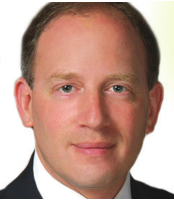A look at people with the same career but dramatically different investment results
I have advised many corporate executives at various stages of their careers.
Some make all the right decisions related to their personal financial planning, and consequently accumulate significant wealth. Some will avoid making important decisions or forgo available corporate benefits and miss out on some great opportunities to save and invest.
Imagine two investors, Jane and John. Jane goes to work out of college and takes the time to educate herself on personal financial planning and wants to maximize her financial position. At the same time, John goes to work but does not worry about his financial plan. They work in similar positions at the same publicly traded company, which offers all employees a 401(k) plan with a 4% company match. The plan allows for traditional pre-tax contributions or Roth contributions. It also allows for post-tax contributions beyond the annual limits of $19,500 for those under age 50 and $26,000 for those over age 50. This plan even allows for in-plan conversions from the pre-tax or post-tax account to the Roth account.
The company also offers a Health Savings Account and an Employee Stock Purchase Plan with a 15% discount on the price of the company shares.
Jane knows that if she doesn’t contribute to the 401(k), she
doesn’t get the match. If the average college graduate earns $50,000
annually and the invested income grows 5% per year, the match in a
401(k) can add up to a significant sum over a 30-year career. (If the
ongoing match in the retirement plan earns 7%, that account alone could
compound to about $350,000 in 30 years.)
John
heard about the match but isn’t worrying about retirement at his young
age. If he waits five years and then starts contributing to get the
match, the compounded value of his account would be about $60,000 less
than Jane’s.
Participating in an Employee Stock Purchase Plan is similar to the 401(k) decision.
If you participate, you get the additional savings. If you don’t, you lose that opportunity.
I’ve
advised numerous people with access to ESPP plans, and fewer take
advantage of this benefit than do the 401(k). The benefit amount is
generally less than a 401(k) match at lower income levels, but an
investment in an ESPP does not need to be deferred for 30 or more years
until retirement.
If Jane and John’s employer offers a 15% discount on their
shares and allows employees to invest up to 10% of their pay into the
plan, it would provide an initial $750 bonus, assuming the share price
does not change during the year. Jane gladly participates to get this
bonus, but John won’t bother for that small amount. What John doesn’t
realize is this $750 discount bonus earning 7% and increasing with pay
raises could grow to well over $132,000 if compounded during a 30-year
career.
Some savings plans depend on the benefits offered
by an employer while many others are unrelated. For employees, it’s not
enough just to participate in their company 401(k). Employers’
savings plans often have dozens of investment choices within the plan
that should be strategically chosen.
Someone
investing in stock funds will likely accumulate more than someone
investing in stable value funds over a 30-year career. Then, there are
tax strategies that need careful consideration. Sometimes paying taxes
on money contributed to a plan now rather than paying them later can
allow for tax-free compounding that can have a highly positive impact in
retirement. Just as eating right should be a healthy lifestyle
decision, participating in available savings plans and investment
opportunities is essential to long-term financial health.
The
ideal financial plan starts as early as possible. Some young people
even start saving money in tax-advantaged accounts from summer job
earnings and allow those contributions to compound over many decades.
Courses on financial planning can be greatly beneficial to young
investors, and seeking the advice of a certified financial planner is
highly recommended.
Daniel Cohen is CEO and chief investment officer at Cohen Investment Advisors, Bedford. He can be reached through investwithcohen.com.